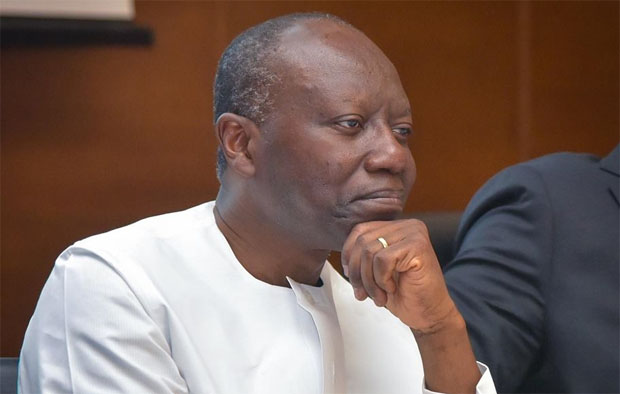Ghana’s government has revised its economic projections for the year, reducing the growth forecast by approximately 50%.
Additionally, the country is now expecting higher inflation and a primary deficit, a significant shift from the previous hope for a surplus.
During the mid-year budget review in parliament, Finance Minister Ken Ofori-Atta disclosed that last year’s budget deficit was 11.8 per cent of GDP, nearly double the initial target of 6.3 per cent.
For 2023, the government anticipates the economy to grow by 1.5 per cent, down from the earlier projection of 2.8 per cent. These adjustments are attributed to fiscal consolidation measures and challenging global economic conditions.
Ghana’s economy is facing significant challenges and may not be able to handle a growth rate as high as 2.8% this year. Despite Finance Minister Ken Ofori-Atta initially stating that there would be no need for a supplementary budget, mounting fiscal pressures have forced him to cut expenditures by approximately $2 billion.
The projected economic downturn in Ghana has led to the revision of key economic indicators. End-period inflation is now expected to reach 31.3%, significantly higher than the earlier projection of 18.9%. Additionally, the balance of payment burden is expected to worsen as Gross International Reserves may only cover about 0.8 months of imports.
This downward revision in projected growth for 2023 is attributed to a general slowdown in all three sectors of the economy, influenced by factors such as the fiscal consolidation plan under the three-year IMF-supported programme and challenging global conditions. Nevertheless, the Finance Minister remains hopeful, projecting that the overall GDP growth will rebound to 2.8%, 4.7% and 4.9% in 2024, 2025 and 2026, respectively.
The government aims to develop an enhanced Growth Strategy that encourages private domestic and foreign investments to stimulate growth and create job opportunities. On the fiscal side, talks between the government and creditors regarding external debt restructuring have not progressed beyond the assurance stage, leaving uncertainties. Additionally, the announcement of what appears to be another Domestic Debt Exchange Programme (DDEP) has raised concerns amongst investors who were initially excluded from the programme.
Five groups, including Pension Funds and Independent Power Producers (IPP), have been called to the negotiation table for a fresh round of debt restructuring talks. While IPPs have declined any debt rework talks, organised labour is open to engaging with Ken Ofori-Atta and his team.
The government aims to address a debt burden of approximately $5 billion they owe these two groups. Trade unions have doubts about the projected economic expansion, pointing to the continuous depreciation of the cedi against the dollar, rising inflation and import costs as potential factors that could hinder the government’s medium-term plans under the IMF Extended Credit Facility programme. Although the economy is expected to expand over the next three years, the debt-to-GDP ratio is anticipated to remain above 88%, according to the IMF.



